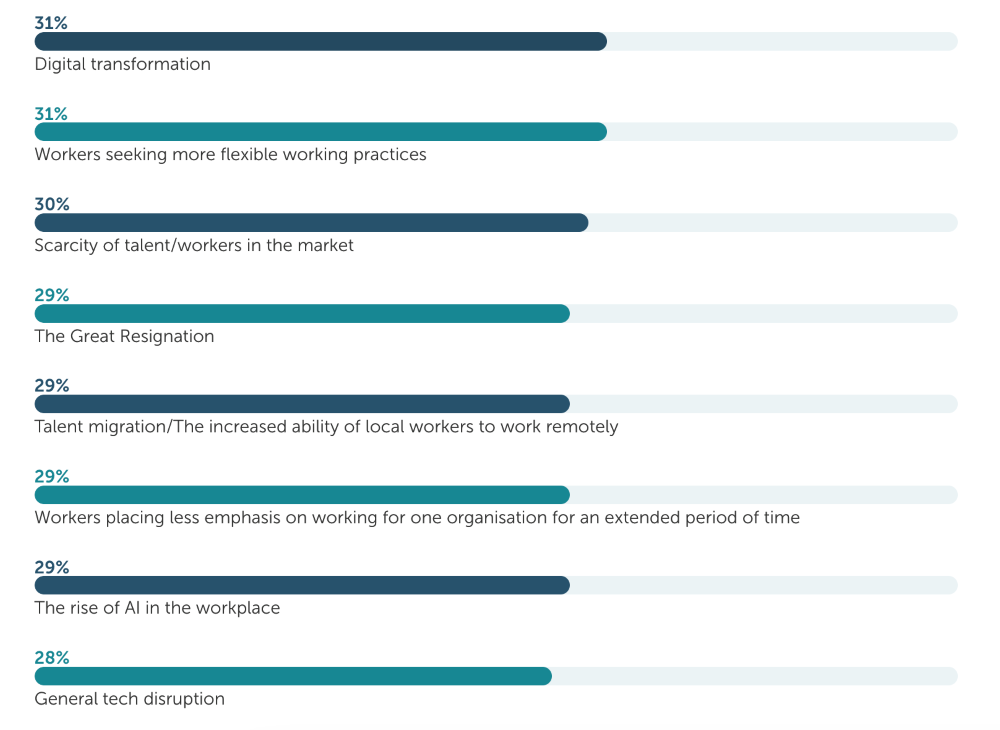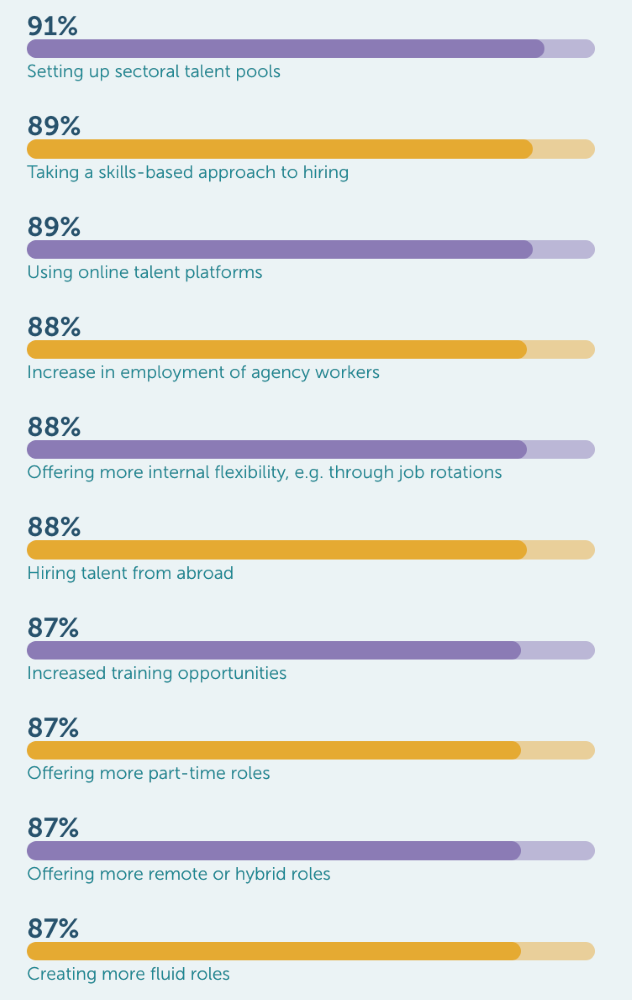
Employers urged to foster 'uniquely human traits' amid AI development: report

A new report is warning of a future skills gap as three in four employers are concerned they won’t be able to train their employees fast enough to catch up with developing technology.
New research from the World Employment Confederation (WEC) found that 81% of employers acknowledge that AI will require new skills and new ways of getting work done.
However, another 78% are concerned that their organisation cannot train their employees fast enough to keep up with the development of technology in the next three years.
"This could be very difficult," the WEC warned. "Organisations might find themselves with skills gaps that badly constrain their performance and limit their ability to adapt to the new digital era."
ManpowerGroup, a member of the WEC, said the growing technical and soft skills gap is a "critical hurdle" that businesses need to overcome.
"While Gen AI will revolutionise many aspects of work, there are elements of jobs that are, and will remain, quintessentially human: collaboration, communication, creative problem solving, and empathy towards others," said Jonas Prising, chairman and CEO of ManpowerGroup, in a statement.
"Organisations must cultivate these uniquely human traits and invest in upskilling and their workforce to succeed in this new digital era."
The findings come from the research "Agile Talent in the Age of AI," which is the first instalment of a WEC-commissioned initiative called "The Work We Want."
Denis Pennel, managing director of WEC, called the initiative a "conversation starter" for governments, employers, and workers to address and find solutions to the new work reality.
Meanwhile, the report also revealed that digital transformation and employees' desire for flexible working practices will be the biggest challenges for talent planning in the future.
 Source: Agile Talent in the Age of AI
Source: Agile Talent in the Age of AI
Agility will be the key to increasingly challenging talent planning, according to the report.
"Agile talent models should help them meet workers' most important expectations. Moreover, they will be crucial to organisational success when constant change is the norm," it read.
To create more flexible workforces, the report found that employers are now setting up sectoral talent pools and taking a skills-based approach to hiring.
 Source: Agile Talent in the Age of AI
Source: Agile Talent in the Age of AI
"AI has made agility non-negotiable, and the HR services industry is crucial in helping to fill the labour and skills gaps brought on by digitalisation," Pennel said in a statement.